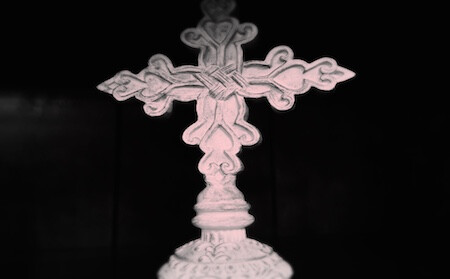Sitting at the Right Hand of the Father

In Matthew 20:20-23, we are introduced to the mother of James and John, who begs of Jesus, “‘Declare that these two sons of mine will sit, one at your right hand and one at your left, in your kingdom.’ But Jesus answered, ‘You do not know what you are asking… You will indeed drink my cup, but to sit at my right hand and at my left, this is not mine to grant, but it is for those for whom it has been prepared by my Father.’” Jesus reiterates in verses 25-28, “’You know that the rulers of the Gentiles lord it over them, and their great ones are tyrants over them. It will not be so among you; but whoever wishes to be great among you must be your servant, and whoever wishes to be first among you must be your slave; just as the Son of Man came not to be served but to serve, and to give his life a ransom for many.’”
The mother of James and John asks that her sons sit at the right and left hand of God in order that they might be exalted, but when we say that Christ ascended into heaven and is seated at the right hand of the Father we mean that Christ is not exalted in this world, but instead underwent the crucifixion so that he might be glorified in heaven. St. Thomas of Aquinas, in his article “Whether it is fitting that Christ should sit at the right hand of God the Father?” quotes St. Augustine’s words that “Christ dwells so at the right hand of the Father: for He is happy, and the Father’s right hand is the name for His bliss.” In a sense, Christ’s seat at the right hand of the Father is the eternal beauty that he finally receives after the suffering he experienced on this earth. When Jesus proclaims that the Father has prepared a place for us, the place for Jesus is specifically at His right hand. It would seem that, lifted high in his crucifixion, Christ was able to reach up and wipe the dust off of the seat at the right hand of God, the seat where he knew he would sit after his ascension.
Additionally, St. Thomas of Aquinas writes that, “Christ is said to sit at the right had of the Father inasmuch as He reigns together with the Father, and has judiciary power from Him; just as he who sits at the king’s right hand helps him in ruling and judging.” Consistent with the upheaval of the world’s power through the incarnation of God in Jesus Christ, the kingdom of God mirrors the system of a king and those at the king’s right hand, but transformed into a kingdom with God’s justice in place. Christ’s presence within the kingdom, Christ sitting at the Father’s right hand, means that he will serve as judge. We know by his life, death, and resurrection that Christ’s presence in judgment means that our judgment will ultimately be met with divine grace.
When we say that Christ ascended into heaven and is seated at the right hand of the Father, I believe we mean that through his crucifixion, resurrection, and ascension, Christ now dwells with God, offering a judgment alongside the Father that looks like grace. Christ sitting with the Father might mean for us that, while we stand, kneel, or prostrate ourselves as we wait for the second coming, Christ sits—at peace, and in no rush to stop offering grace from the right hand of God.


